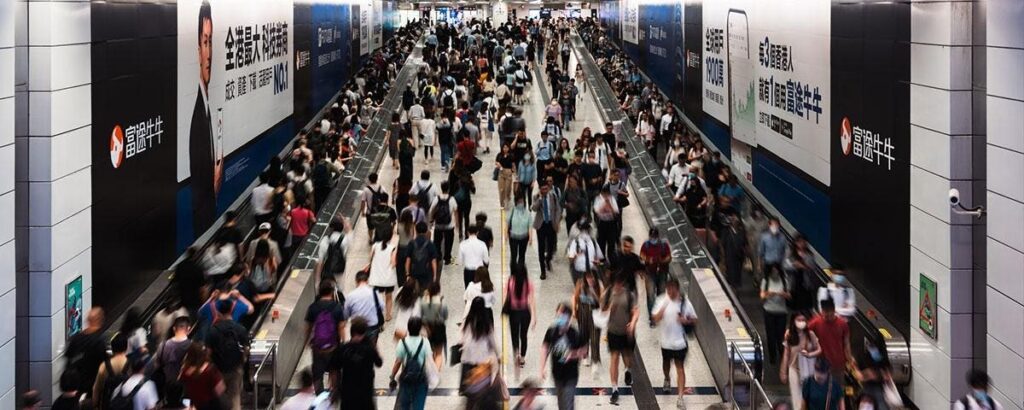Key News
Asian equities had a good day as fewer tariffs meant markets were up. India had a strong day following yesterday’s market holiday, Vietnam was off, and Thailand remained closed for the Songkran Festival.
Hong Kong and Mainland China bounced around the room, posting small gains, though expected US tariffs on semiconductors and pharmaceuticals weighed heavily on those subsectors along with technology hardware. Bloomberg News reported that China has stopped importing Boeing airplanes, according to “people familiar with the matter.” I’ve not seen this confirmed, but with China’s reciprocal tariffs, taking delivery and paying 2X makes no sense. I would recommend waiving the tariff to allow Boeing parts for the sake of Chinese airlines and their passengers!
After the close, Premier Li was in the headlines, stating that the government would “…expand domestic demand in all directions, calmly deal with the difficulties and challenges brought about by external shocks, and promote consumption, expand domestic demand….”. I suspect markets want to see a more aggressive implementation of the RMB 2 trillion stimulus announced by the National People’s Congress (NPC).
Sell-side economists like UBS and Société Générale have started to lower their 2025 GDP targets due to the impact of US tariffs. Domestic consumption plays have done decently, though more forceful action is needed. Hong Kong-listed internet stocks reflect an element of this domestic consumption focus, as the stocks were largely higher, led by Alibaba, up +1.85%, Tencent, up +0.44%, Meituan, up +0.62%, Kuaishou, up +1.69%, JD.com, which pulled an inverse James Bond to fall -0.07%, Trip.com, up +0.77%, and Baidu, up +0.06%.
Mainland investors bought $928 million worth of Hong Kong-listed stocks via Southbound Stock Connect, which accounted for 44% of Hong Kong’s turnover. Mainland China lacked strong catalysts, though, at day’s end, China ETFs favored by the National Team experienced high volumes going into the lunch break and very high volumes into the market close. After the close, CATL gained +1.85% after the company reported Q1 results, with net income beating expectations and revenue a slight miss. President Xi left Vietnam for Malaysia.
Yesterday, I referenced a Hong Kong government official speaking about expediting Hong Kong listings from US-listed Chinese companies. It took some digging, but it was Hong Kong Financial Secretary Paul Chan on his blog where he stated, “Hong Kong has established a regulatory framework to facilitate companies listed overseas to conduct dual listing or second listing in Hong Kong. In response to the latest global changes, I have instructed the China Securities Regulatory Commission and the Hong Kong Stock Exchange to be prepared.” With the help of the Hong Kong Exchanges, we are monitoring the section of their website where relisting US listed companies will publicly file. Nothing overnight from Pinduoduo nor Full Truck Alliance.
The Hang Seng and Hang Seng Tech indexes diverged to close +0.23% and -0.67%, respectively, on volume that was down -26.96% from yesterday, which is 105% of the 1-year average. 194 stocks advanced, while 268 declined. Main Board short turnover decreased by -30.34% from yesterday, which is 107% of the 1-year average, as 16% of turnover was short turnover (Hong Kong short turnover includes ETF short volume, which is driven by market makers’ ETF hedging). Value and large capitalization stocks outperformed growth and small capitalization stocks. The top-performing sectors were Utilities, up +0.88%; Energy, up +0.73%; and Consumer Discretionary, up +0.72%. Meanwhile, the worst-performing sectors were Healthcare, which fell -1.04%; Real Estate, which fell -0.95%; and Information Technology, which fell -0.67%. The top-performing subsectors were consumer durables, apparel, consumer services, and household appliances. Meanwhile, semiconductors, national defense, and steel were among the worst-performing subsectors. Southbound Stock Connect volumes were 2X pre-stimulus September levels as Mainland investors bought a net $928 million worth of Hong Kong-listed stocks and ETFs, including China Mobile, Meituan, and Tencent, which were moderate net buys, Kuaishou, which was a small net buy, and Alibaba, SMIC, and Xiaomi, which were moderate net sells.
Shanghai, Shenzhen, and the STAR Board diverged to close +0.15%, -0.19%, and -0.78%, respectively, on volume that was down -15.91% from yesterday, which is 88% of the 1-year average. 1,884 stocks advanced, while 3,067 declined. Value and large capitalization stocks outperformed growth and small capitalization stocks. The top sectors were Financials, up +0.65%; Utilities, up +0.27%; and Communication Services, up +0.26%. Meanwhile, the worst-performing sectors were Information Technology, which fell -1.31%; Materials, which fell -0.99%; and Real Estate, which fell -0.81%. The top-performing subsectors were chemicals, soft drinks, and leisure products. Meanwhile, ports, aerospace, and chemical fibers were among the worst-performing subsectors. Northbound Stock Connect volumes were near the one-year average. CNY and the Asia Dollar Index both fell versus the US dollar. Treasury bonds were flat. Copper rose, and steel fell.
New Content
Read our latest article:
New Drivers For China Healthcare: AI Med-Tech Innovation, Cancer Treatment, & Favorable Balance of Trade
Please click here to read
Last Night’s Performance
Last Night’s Exchange Rates, Prices, & Yields
- CNY per USD 7.31 versus 7.31 yesterday
- CNY per EUR 8.29 versus 8.28 yesterday
- Yield on 10-Year Government Bond 1.66% versus 1.66% yesterday
- Yield on 10-Year China Development Bank Bond 1.70% versus 1.71% yesterday
- Copper Price +0.25%
- Steel Price -0.16%
Read the full article here











